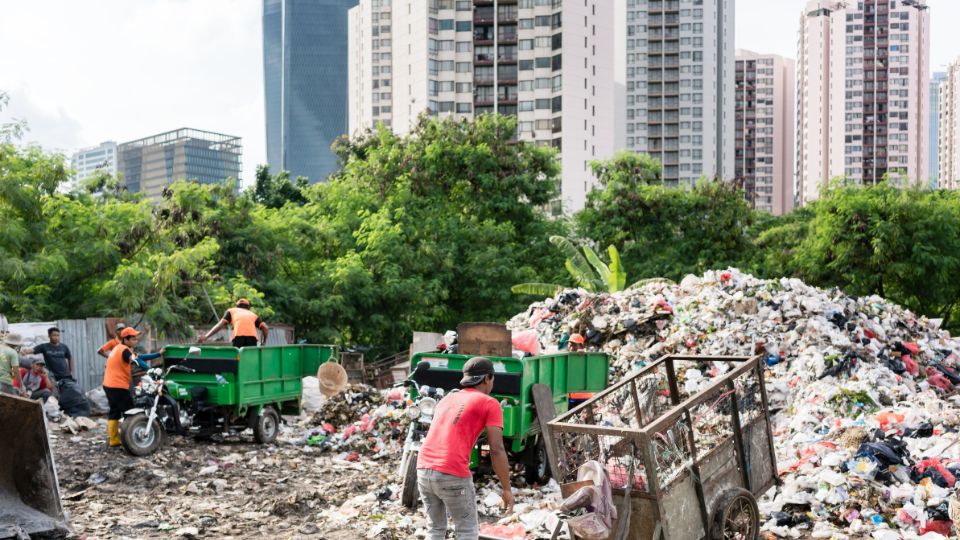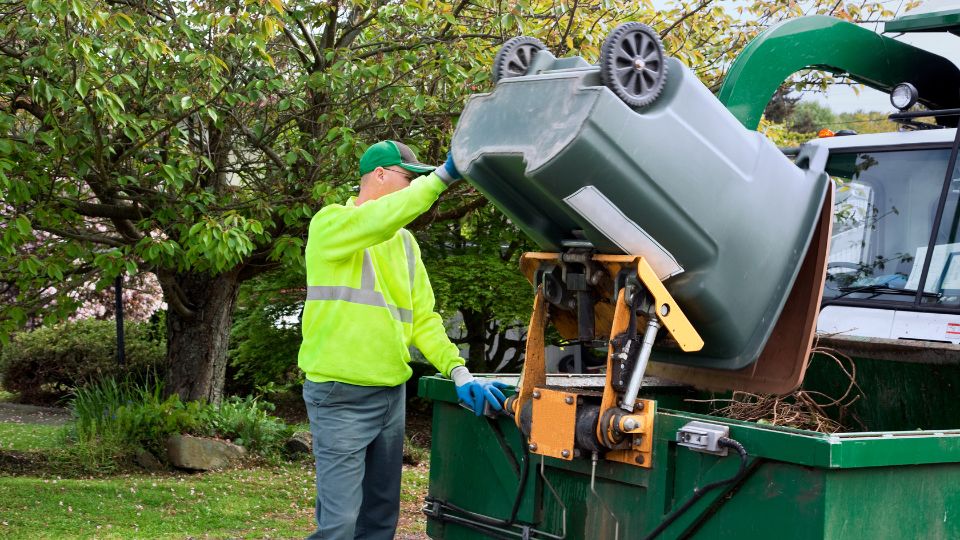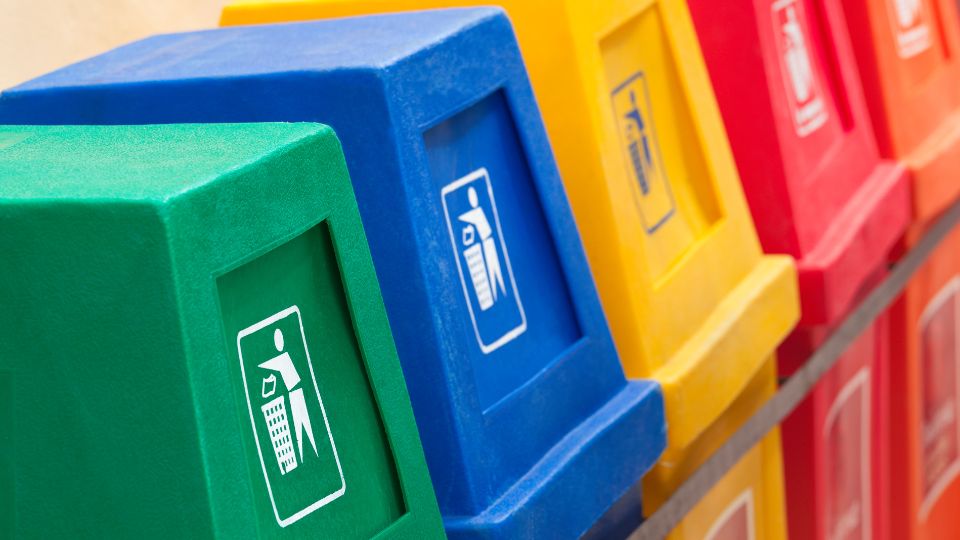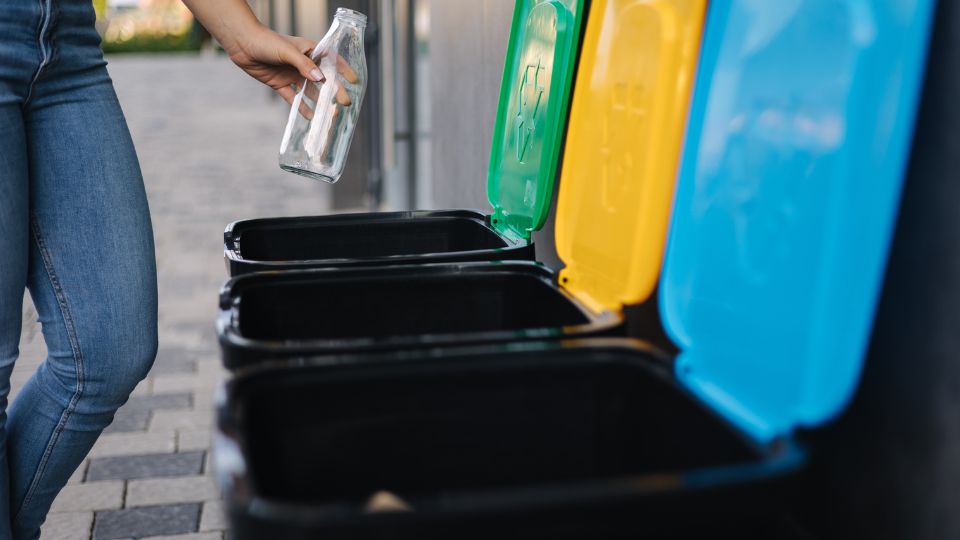
In the competitive environment of the UK hotel industry, efficient waste management is more than a regulatory requirement—it is a fundamental driver of profitability, operational efficiency improvement, and a demonstration of environmental responsibility.
This blog explores key aspects of hotel waste management, including its environmental impacts, common wasteful practices within the industry, and the importance of adopting strategic waste reduction measures to promote sustainable business practices.
Table of Contents
- Environmental Costs of Waste in the Hotel Industry
- How Wasteful is the Hotel Industry?
- Why is Waste Management Important in the Hotel Industry?
- Strategies for Reducing Costs of Waste in the Hotel Industry
- The Benefits of Effective Waste Management
Environmental Costs of Waste in the Hotel Industry
It has been estimated that 75% of hotels’ environmental impacts can be directly attributed to excessive consumption of resources, resulting in unnecessary operational costs.

The three primary areas contributing to these impacts are energy usage, water consumption, and waste generation. Hotels consume substantial amounts of energy for heating, cooling, lighting, and running amenities. Excessive water use, particularly in laundry and guest facilities, further exacerbates environmental strain.
Waste generation, including food waste, packaging, and disposable items, compounds these impacts by contributing to landfill volumes and emissions from waste transport. Addressing these areas through efficient resource management and waste reduction strategies is crucial for mitigating environmental impact and reducing operational expenses in the hotel industry.
How Wasteful is the Hotel Industry?
Hotels are notorious for their wasteful practices, primarily driven by high turnover rates, guest expectations for single-use amenities, and inefficient operational processes. Disposable toiletries, excess food waste from banquet services, and outdated furnishings contribute significantly to landfill volumes and operational costs. By adopting proactive waste reduction strategies, such as recycling initiatives and food waste management programs, hotels can significantly minimise waste output and optimise resource utilisation.
Why is Waste Management Important in the Hotel Industry?
Waste management plays a crucial role in the sustainability and profitability of hotels for several reasons:

1. Environmental Responsibility:
Implementing effective waste management practices demonstrates a commitment to environmental stewardship, reducing a hotel’s carbon footprint and enhancing its reputation as a responsible corporate citizen.
2. Cost Savings:
Efficient waste management reduces waste disposal costs, minimises procurement expenditures on disposable goods, and may qualify hotels for tax incentives or rebates related to sustainability initiatives.
3. Guest Satisfaction:
Today’s eco-conscious travellers prefer accommodations that prioritise sustainability. By integrating sustainable practices into their operations, hotels can attract environmentally aware guests, enhance guest satisfaction, and differentiate themselves in a competitive market.
Strategies for Reducing Costs of Waste in the Hotel Industry
To mitigate the hidden costs of hotel waste and drive sustainable business practices, consider implementing the following strategies:
Conduct Comprehensive Waste Audits
Conducting waste audits can help hotels improve their waste management strategies by analysing the types and volumes of waste produced. Hotels can identify inefficiencies, pinpoint areas for improvement, and set measurable waste reduction goals.
This proactive approach helps in optimising waste disposal processes and also lays the foundation for implementing targeted strategies to minimise waste generation and maximise resource recovery.
Implement Food Waste Reduction Programs
Food waste is a significant challenge in the hospitality industry, with over 79,000 tons of food waste produced annually, which leads to substantial environmental and financial implications. Implementing food waste reduction programs is essential for hotels looking to mitigate these impacts.
Strategies such as portion control techniques, where precise serving sizes are emphasised to reduce over-preparation, can significantly reduce food waste at the source. Composting organic waste and establishing partnerships with local food banks or charities for food donation initiatives are effective ways to divert edible surplus from landfills, benefiting both the environment and the community.
By integrating these practices hotels can minimise waste disposal costs, demonstrate social responsibility and improve overall operational efficiency.
Establish Recycling Programs

Establishing recycling programs is critical for hotels to manage their waste sustainably. Providing clearly labelled recycling bins for paper, plastics, glass, and other recyclable materials throughout the hotel premises encourages both staff and guests to participate in recycling efforts.
Effective signage and educational materials can help raise awareness about proper recycling practices and the importance of waste diversion. By diverting recyclable materials from landfills, hotels contribute to reducing carbon emissions associated with waste transportation and conserving valuable natural resources Integrating recycling programs into hotel operations enhances the establishment’s environmental credentials and aligns with guest expectations for eco-friendly accommodation options.
Optimise Procurement Practices
Optimising procurement is crucial for minimising waste and promoting sustainability in hotels. Partnering with suppliers offering eco-friendly products and packaging cuts environmental impact. These include recycled materials, biodegradable packaging, or energy-efficient appliances.
Sustainable procurement reduces waste and supports eco-friendly product adoption in the supply chain. Emphasising durable, long-lasting, and recyclable goods in procurement policies can save costs and boost operational efficiency.
Educate Staff and Guests
Educating staff and guests on waste reduction and sustainability fosters environmental stewardship in hotels. Staff training should cover waste segregation, recycling, and efficient resource use. Empowering employees to reduce waste improves operational efficiency and cuts costs.
Guest engagement through information, signage, and interactive programs promotes eco-friendly behaviour. Demonstrating commitment to sustainability enhances guest satisfaction, attracts eco-conscious clientele, and boosts brand reputation in hospitality.
The Benefits of Effective Waste Management

Financial Benefits: Effective waste management can lead to reduced waste disposal costs and potential savings on procurement through sustainable purchasing practices. By optimising resource use and minimising waste generation, hotels can achieve cost efficiencies and improve overall financial performance.
Operational Efficiency: Streamlined waste management processes contribute to enhanced operational efficiency by reducing the time, labour, and resources required for waste handling and disposal. Improved efficiency allows hotels to allocate resources more effectively towards guest services and facility maintenance.
Environmental Stewardship: By minimising waste generation and maximising resource recovery through recycling and composting programs, hotels can significantly reduce their environmental footprint. This includes lowering carbon emissions associated with waste transport, conserving natural resources, and mitigating pollution and habitat degradation.
Enhanced Reputation: Positioning as a leader in sustainable hospitality enhances a hotel’s reputation and appeal to environmentally conscious guests. Demonstrating a commitment to environmental stewardship not only attracts a growing segment of eco-aware travellers but also strengthens brand loyalty and differentiation in the competitive hospitality market.








